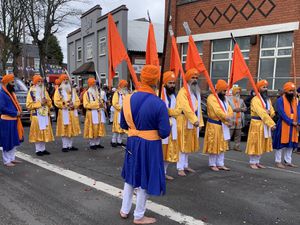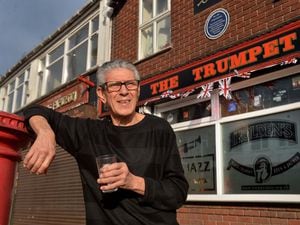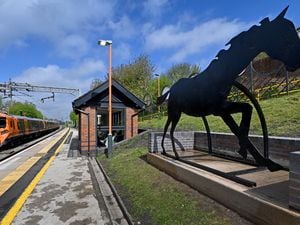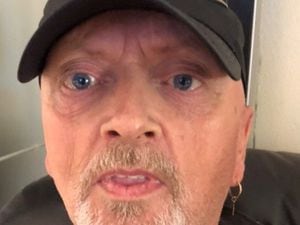Wolverhampton woman's life-saving stroke treatment features in new documentary
"I cannot find the words to explain how I feel about the doctors and nurses who have given me the normal life I have today."
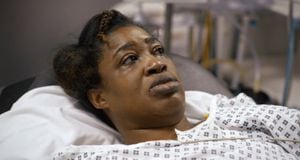
Those are the words of a single mother in the Black Country who received pioneering treatment after suffering a stroke in her sleep.
Fiona Grant, from Wolverhampton, found herself unable to speak or move her left side – and was found by her son, who raised the alarm.
The 38-year-old, whose plight has been featured in an episode of 999: Critical Condition, said: "I remember waking up and my arm was dead and my left side wasn’t moving. I thought someone was in the bed next to me and then realised it was my own hand. I couldn’t speak and when I tried to shout out all I could manage was a little noise.
"Eventually my son came in and saw me and realised I couldn’t talk. He put a pen in the hand which I could move and I was able to write down ‘I am having a stroke’.
"He tried to help me out of bed and I look back and think it was so stupid because I’m not sure we knew what would happen next. But he rang my next of kin and 999 for an ambulance."
The healthcare assistance was transferred to New Cross Hospital before she was transferred to Royal Stoke University Hospital for advanced treatment.
The mother-of-two, who underwent the pioneering stroke mechanical thrombectomy service, said: "In the ambulance I remember being told that I had a limited time to get to Stoke and that the doctor was waiting for me and started to explain the procedure and the next thing I remember is waking up in the recovery room.
"The care I received at Stoke was fantastic. I cannot find the words to explain how I feel about the doctors and nurses who have given me the normal life I have today.
"My thanks goes to the whole unit for giving me back my life and I wish that anyone else in the same position as me has the opportunity to get the same treatment at the time they need it. I am really grateful to be alive."
The hospital is one of only two in the country which can provide the service within 24 hours of a stroke happening.
Dr Sanjeev Nayak, interventional neuroradiologist, who treated Fiona, said: "It’s pretty rare for someone to have a stroke but young strokes are a reality. Stroke is not just a disease of old people, it does also affect young people and can result in a life changing disability if it’s not treated and worst case scenario the patient will die.
"Strokes in young people can be far more devastating and that’s why it is essential that people recognise the symptoms so we can provide rapid treatment where possible."
Fiona's story has been filmed as part of University Hospitals of North Midlands' 999: Critical Condition services available on demand at My5.
Three most common signs of a stroke include facial and arm weakness and speech problems. But people sould be wary of numbness on one side of the body, sudden blurred vision, memory loss, confusion and a sudden severe headache.

